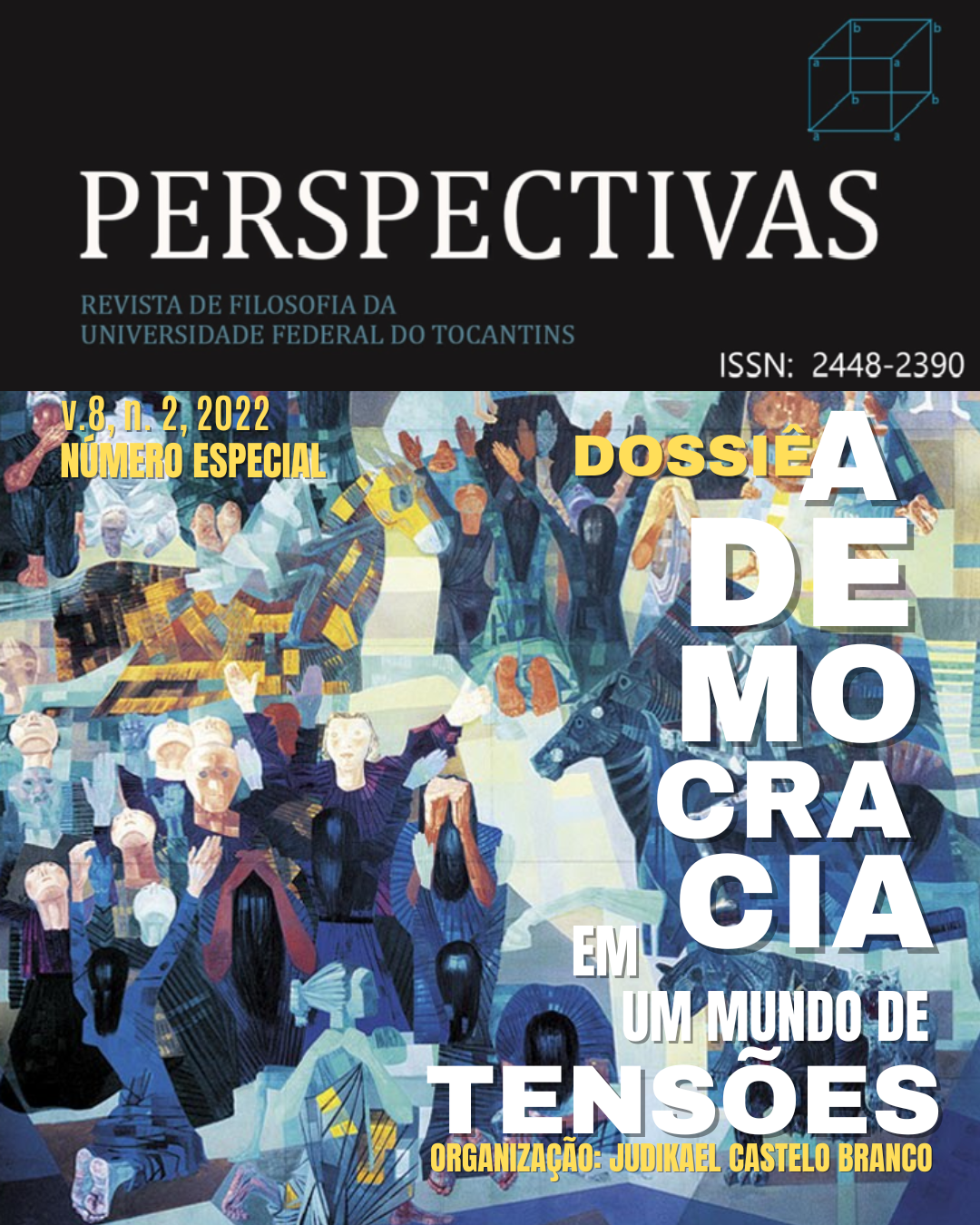Other Stories: dominant hitorical narrative and resistance
DOI:
https://doi.org/10.20873/rpv8n2-82Keywords:
Democracy, Brazilian dictatorship, Lélia Gonzales, Marilena ChauíAbstract
Lélia Gonzalez, a black Brazilian feminist philosopher, in a text published in 1982 relativizes the dominant historical narrative, which she calls “official history”. According to this narrative, Brazilians are cordial and our history would be a model of peaceful solutions to conflicts. Lélia Gonzalez’s words resonate impressively with those of Marilena Chauí in a text from the same period. Brazilian society, Chauí said, is fundamentally authoritarian and violent. But there is a history of resistance, a history that has not been written. In this text, we want to reflect on this game between the domination of an official history and the resistance of an unwritten history, encompassing not only the black question, but also the Brazilian dictatorship of 1964-85 – in this case, from the recent reflections of Heloísa Starling, Newton Bignotto and Miguel Lago on the government of Jair Bolsonaro, direct heir of the dictatorship. If unwritten Brazilian history is a history of minority struggle and resistance, how can we understand this moment of crisis of democracy that we are experiencing today? Is passive cultural resistance strong enough to escape authoritarianism in its most brutal state?
References
AGAMBEN, G. “Tempo e história. Crítica do instante e do contínuo”. In: Infância e história. Destruição da experiência e origem da história. Belo Horizonte: Editora UFMG, 2014.
BIGNOTTO, N. “Bolsonaro e o bolsonarismo entre o populismo e o fascismo”. In: STARLING, H.; LAGO, M.; BIGNOTTO, N. Linguagem da destruição. A democracia brasileira em crise. São Paulo: Companhia das Letras, 2022.
CHAUÍ, M. “Brasil: mito fundados e sociedade autoritária”. In: Manifestações ideológicas do autoritarismo brasileiro. Belo Horizonte: Autêntica Editora; São Paulo: Fundação Perseu Abramo, 2013b.
CHAUÍ, M. “O homem cordial, um mito destruído à força”. In: Manifestações ideológicas do autoritarismo brasileiro. Belo Horizonte: Autêntica Editora; São Paulo: Fundação Perseu Abramo, 2013a.
DELEUZE, G. Cursos sobre Leibniz – El Leibniz de Deleuze. Buenos Aires: Editora Cactus, 2006.
DELEUZE, G. Diferença e repetição, Rio de Janeiro/São Paulo: Paz e Terra, 2018.
GONZALEZ, L. “A mulher negra na sociedade brasileira”. In: Por um feminismo afro-latino-americano. Organização Flávia Rios e Márcia Lima, Rio de Janeiro: Zahar, 2020b.
GONZALEZ, L. “Cultura, etnicidade e trabalho”. In: Por um feminismo afro-latino-americano. Organização Flávia Rios e Márcia Lima. Rio de Janeiro: Zahar, 2020a.
GONZALEZ, L. “Racismo e sexismo na cultura brasileira”. In: Por um feminismo afro-latino-americano. Organização Flávia Rios e Márcia Lima. Rio de Janeiro: Zahar, 2020c.
NOVAIS, F. Aproximações. Estudos de história e historiografia. São Paulo: Cosac Naify, 2005.
SODRÉ, M. Pensar nagô. Petrópolis: Vozes, 2017.
SPIVAK, G. “Quem reivindica alteridade?” In: HOLLANDA, H. B. Pensamento feminista. Conceitos fundamentais. Rio de Janeiro: Bazar do Tempo, 2019.
STARLING, H. “Brasil, país do passado”. In: STARLING, H.; LAGO, M.; BIGNOTTO, N., Linguagem da destruição. A democracia brasileira em crise. São Paulo: Companhia das Letras, 2022.
Downloads
Published
Versions
- 2026-02-01 (2)
- 2023-09-18 (1)
How to Cite
Issue
Section
License
Copyright (c) 2023 Tessa Moura Lacerda

This work is licensed under a Creative Commons Attribution 4.0 International License.
The Magazine is under the Creative Commons Attribution 4.0 International Public License (CC BY 4.0), according to which:
1) The authors retain the copyright and grant the journal the right of first publication, with the work simultaneously licensed under the Creative Commons Attribution which allows the sharing of articles published with the recognition of authorship and initial publication in this journal.
2) Authors are authorized to enter into additional contracts separately for distribution of the version of the work published in this journal, as long as there is recognition of authorship and initial publication in Perspectivas.
3) Authors are authorized and encouraged to disseminate published texts with proper references to the journal and its authors.





















